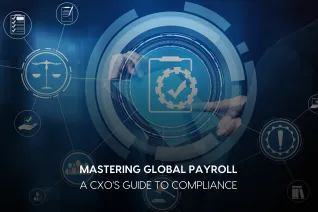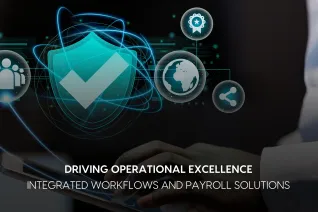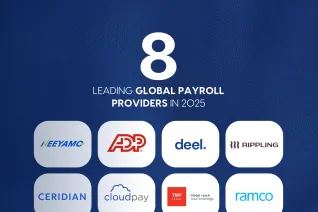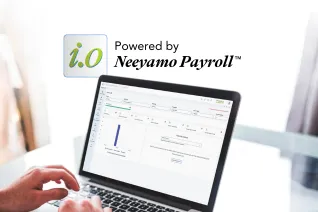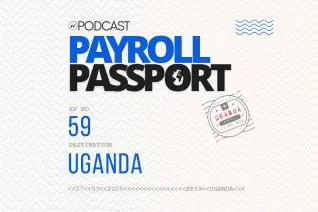Importance of Confidentiality in Global Payroll
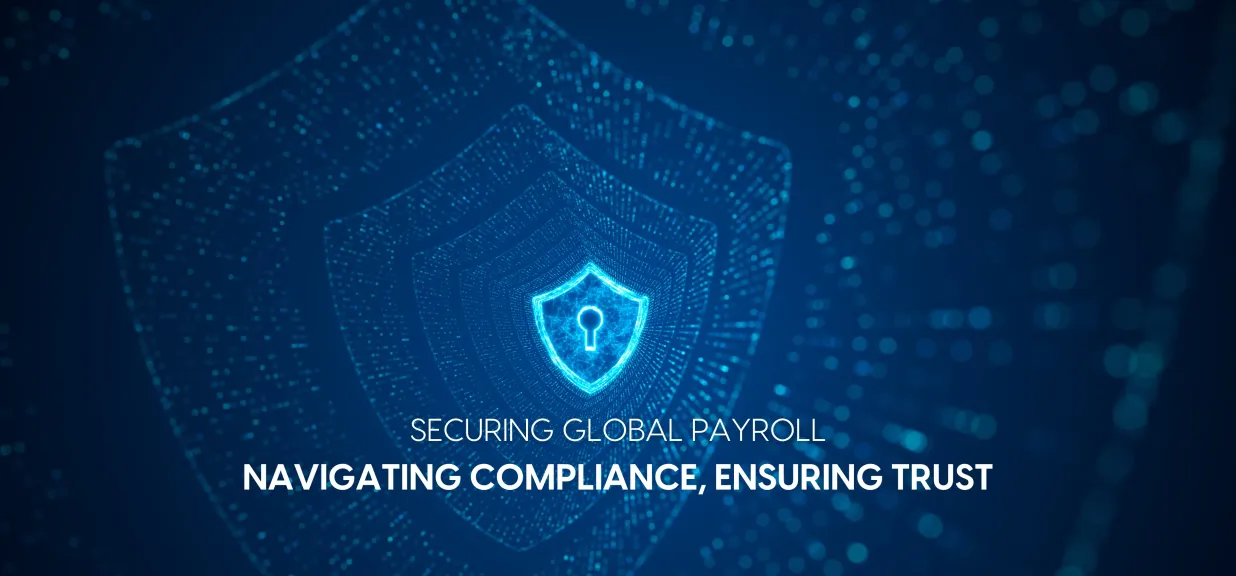
Have you ever considered the complexity of managing payroll for employees across multiple countries? It’s not just about ensuring accurate payments—it’s also about handling sensitive personal and financial data with care. In global payroll, confidentiality isn’t merely an expectation—it’s an absolute necessity.
This blog delves into why confidentiality in global payroll matters, the risks of neglecting it, and the best practices for safeguarding sensitive information.
Why is Confidentiality in Global Payroll Essential?
Confidentiality in global payroll is about protecting sensitive information, including salaries, benefits, taxes, and personal employee details, from unauthorized access. The repercussions of failing to secure this information can be devastating.
1. Protecting Employee Privacy
Imagine if an employee’s salary or personal details were leaked. It could lead to identity theft, fraud, or even harm the employee’s trust in the company. Such incidents can escalate quickly. For instance, in 2021, a major retail company faced a breach that exposed the payroll data of thousands of employees, leading to widespread dissatisfaction and legal challenges.
Moreover, in regions like Asia, countries such as Japan and South Korea have stringent personal information protection laws that mandate localized data handling strategies. Failing to comply with these regulations increases the risk of legal penalties and compounds the damage from a potential breach.
When employees feel secure about their data, it fosters trust. A breach, however, can irreparably damage this trust, affecting employee morale and loyalty.
ALSO READ I Payroll Privacy in the Cyber Era: Essential Strategies for Data Security
2. Ensuring Legal and Regulatory Compliance
Regulations like the General Data Protection Regulation (GDPR) in Europe, HIPAA in the United States, and other local data protection laws mandate companies to protect personal data rigorously. Non-compliance can result in severe penalties. A notable example includes a European corporation fined €14 million under GDPR for mishandling payroll data.
Beyond Europe and the U.S., countries worldwide are implementing strict data protection frameworks. China's data protection regulations require local data storage and impose strict restrictions on cross-border data transfers, demanding careful compliance strategies for multinational companies. In the Middle East, additional layers of confidentiality are often necessary due to cultural sensitivities around personal financial information.
By adhering to these laws, companies not only avoid legal trouble but also demonstrate a commitment to ethical business practices.
3. Safeguarding Company Reputation
Confidentiality breaches in payroll can tarnish a company’s reputation. Employees, clients, and investors alike question the organization’s integrity. A strong emphasis on confidentiality showcases a company’s dedication to protecting its employees and stakeholders, building trust and goodwill.
Risks of Ignoring Confidentiality in Payroll Systems
Failing to prioritize confidentiality in payroll systems can lead to severe risks, including financial loss, reputational damage, and legal consequences.
1. Cybersecurity Threats
Cybercriminals frequently target payroll systems. They use phishing attacks, malware, and ransomware to access sensitive data. These incidents highlight the importance of proactive cybersecurity measures to protect payroll systems.
2. Internal Data Breaches
Not all threats come from outside the organization. Disgruntled employees or poorly trained staff can mishandle or intentionally leak payroll data. Mitigating internal risks requires strict access controls, regular audits, and fostering a culture of accountability.
ALSO READ I The Role of Cloud Management in Enhancing Payroll Security and Efficiency
Best Practices for Ensuring Confidentiality in Global Payroll
Maintaining confidentiality requires a mix of technological solutions and human effort. Here are some best practices:
1. Implement Robust Encryption
Encryption ensures that sensitive payroll data is unreadable to unauthorized users. It’s a critical tool in protecting information from breaches. Top payroll platforms like ADP, Workday and Neeyamo utilize advanced encryption technologies, making it nearly impossible for cybercriminals to access sensitive data.
2. Regular Training for Payroll Teams
Human error is one of the leading causes of data breaches. By training payroll staff on cybersecurity best practices, phishing detection, and compliance protocols, organizations can minimize risks.
3. Restrict Access with Role-Based Controls
Not every employee needs access to all payroll information. Implementing role-based access controls ensures that sensitive data is only visible to authorized personnel. Additionally, audit trails help track any unauthorized activities, ensuring accountability.
Technology’s Role in Payroll Confidentiality
Technological advancements have transformed payroll management. Here’s how companies can leverage technology to enhance confidentiality:
1. Cloud-Based Payroll Systems
Cloud solutions offer scalability and convenience but must be paired with strong security measures. Secure cloud payroll systems utilize encryption, multi-factor authentication, and regular updates to protect sensitive data from breaches.
2. AI and Automation in Payroll Security
AI-powered tools can monitor payroll systems for anomalies, identify potential threats, and prevent unauthorized access. For example, AI-integrated payroll software can detect unusual login patterns or flag suspicious activities, preventing breaches before they occur. The most effective approach combines AI's pattern recognition capabilities with human critical thinking and contextual understanding.
ALSO READ I Essential Data Security Measures for Global Payroll
The Future of Confidentiality in Global Payroll
As technology evolves, so do threats to payroll confidentiality. Businesses must stay ahead by adopting emerging trends in payroll security, such as blockchain technology, advanced encryption methods, and AI-driven tools. Moreover, with regulations continuously evolving, organizations need to remain vigilant to ensure compliance.
Conclusion
Confidentiality in global payroll isn’t just a regulatory requirement—it’s a cornerstone of trust, compliance, and business integrity. The risks of neglecting it are too significant to ignore. Organizations must adopt a comprehensive approach that combines robust technological solutions, ongoing staff training, and a culture of data protection to build payroll systems that are both efficient and secure.
Leading global payroll service providers, such as Neeyamo, increasingly demonstrate that successful confidentiality strategies require a multifaceted approach. It involves technological safeguards, a deep understanding of diverse regulatory landscapes, and a commitment to continuously improving data protection methodologies.
As the global business landscape evolves, companies must remain adaptable, continuously updating their strategies to address emerging cybersecurity challenges and changing regulatory environments. The future of global payroll management lies in proactive, holistic approaches to data confidentiality that prioritize technological innovation and human expertise. To know more, reach out to us at irene.jones@neeyamo.com
Latest Resources
Stay informed with latest updates
If you're curious and have a thirst for knowledge pertaining to the HR, payroll, and EOR universe, don't miss out on subscribing to our resources.





